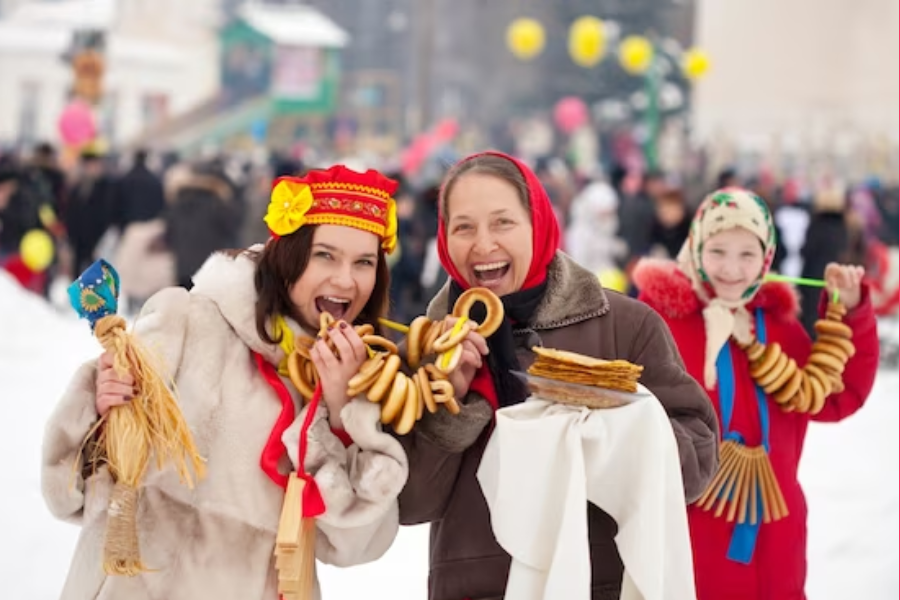Embracing Icelandic Culture
Nestled in the North Atlantic, Iceland is where modernity and heritage intertwine seamlessly. The country’s robust cultural tapestry is woven with tales of Norse mythology and sagas, providing a backdrop that intrigues anyone considering a move to its shores. Understanding the nuanced interplay between individualism and community-mindedness is essential to thrive in Icelandic society. Social interactions here are underpinned by egalitarian principles, where everyone’s opinions are respected irrespective of social standing. This trait is prominently displayed in social gatherings, workplaces, and everyday interactions. Before setting foot in Iceland, it’s prudent to acquaint yourself with the core facets of its society by exploring what to know before moving to Iceland. This understanding becomes the lens through which you can view and appreciate the uniqueness of local customs.
Weather: An Icelander’s Talking Point
The weather in Iceland is an art unto itself, demanding respect and adaptation. Preparation is indispensable with conditions as varied as the landscape—from snow-capped peaks to steaming geothermal springs. This constant climatic flux influences daily life and shapes planning, whether deciding on attire or grocery shopping for the week ahead. Familiar with these mercurial conditions, Icelanders have honed the art of layering garments to a fine craft. Visitors and new residents alike are advised to invest in quality outdoor wear that can handle sudden chills and unexpected warmth. Embracing the climate as an integral aspect of Icelandic life opens doors to adventures that await in every season, from aurora-lit winter nights to the balmy daylight marathons of summer.
Breaking the Language Barrier
Language is the gateway to a culture’s soul, and Icelandic, with its ancient roots and elegant script, offers a unique entry point into Iceland’s national identity. The language tied back to the original Nordic settlers is preserved in literature and oral traditions. Although Icelanders are taught English from a young age, making communication relatively straightforward for English speakers, embarking on learning Icelandic greatly enriches your stay. Mastery of even a few Icelandic phrases can curry favor with locals, who appreciate the effort and engagement it represents. For those eager to embrace this challenge, abundant resources exist—from intensive courses to casual meet-ups for language exchange. According to Iceland Mag, immersion is key, and what better way to complement language studies than by mingling with locals at community centers or cultural events, where words leap off textbook pages and into real-world conversations?
The Icelandic Social Scene
The social scene in Iceland is as dynamic and diverse as its landscapes, promising a vibrant array of experiences for those willing to immerse themselves. Cultural events are staples in the Icelandic calendar, from the thunderous beats of the Airwaves music festival to the serene yet equally engaging Reykjavík Arts Festival. Venturing into these communal gatherings provides newcomers the perfect opportunity to network, make friends, and learn. Iceland is also rich in local traditions; for instance, the ancient rite of Þorrablót, celebrated in the heart of winter, is both a nod to Iceland’s agrarian past and a festive occasion. Such customs, experienced first-hand, provide a glimpse into the Icelandic psyche—a blend of resilience and revelry. Alongside major events, joining local clubs or pursuing hobbies are effective ways to weave into the social fabric.
Budgeting for the Icelandic Lifestyle
Globally renowned for its breathtaking landscapes and high standard of living, Iceland also presents a financial puzzle, particularly for newcomers unacquainted with its economic dynamics. An island situated a considerable distance from continental landmasses, Iceland imports a significant portion of its goods, affecting local prices. Those transitioning to the Icelandic way of life should prioritize learning how to navigate its economic landscape effectively. Developing a clear understanding of costs, from housing and health insurance to everyday commodities, ensures smoother financial management. Considering local banking services, utilities, and commuting costs, well-planned budgeting becomes indispensable. Despite these financial considerations, there are plenty of opportunities to enjoy Iceland without breaking the bank. Discovering deals at local thrift shops, benefiting from seasonal discounts, and exploring the abundant natural wonders that cost nothing beyond a bus fare all contribute to this balance.
Culinary Adventures
Iceland’s culinary offerings often fly under the radar yet deliver a feast of flavors to any curious temper. With its emphasis on pure, fresh ingredients, Icelandic cuisine is a powerful testament to the country’s resourcefulness and connection to its natural environment. The abundance of seafood, lamb, and dairy has been honed through generations into dishes that speak to the island’s agrarian and maritime traditions. Noteworthy are the daring flavors of fermented shark, or ‘hákarl,’ paired frequently with the sharp snaps of brennivín, a local spirit. For those less inclined to culinary adventurousness, Iceland’s contemporary restaurants offer modern twists on classics, a melting pot of inspiration from around the globe. This culinary journey shouldn’t be looked upon merely as sustenance but as an integral component of Icelandic heritage, providing a fuller picture of island life through its tastes and aromas.
Cultivating Environmental Awareness
With sweeping vistas that steal one’s breath away, it’s no wonder that environmental stewardship figures prominently in the Icelandic ethos. Iceland stands at the forefront of sustainable practices, widely utilizing geothermal energy for heating and electricity, harnessing the forces of its geothermal landscape with minimal environmental disruption. Embracing green principles is encouraged across various facets of daily life. Visitors and residents alike are urged to engage with eco-friendly policies, exemplified by comprehensive recycling schemes and eco-conscious transport systems. In urban areas like Reykjavík, biking and electric buses make for low-impact city travel. Moreover, these efforts enrich Iceland’s reputation as a leader in environmental responsibility, inspiring many to carry these ideals forward. By adopting these practices, individuals contribute to preserving Iceland’s pristine environment and gain deeper insight into a way of living that is harmonious with nature.
Embodying the ‘Hygge’ Life
The essence of Icelandic living, capturing the spirit of warmth and coziness during the long winter months and the endless summer days, can be found in the concept of ‘hygge’. Traditionally a Danish and Norwegian idea, hygge captures crafting an environment of comfort, conviviality, and simplicity. For those settling in Iceland, embracing hygge means cultivating gratitude and contentment amidst the sometimes harsh climatic conditions, relishing in the joy of small, everyday moments—be it a quiet cup of coffee by a crackling fire or a stroll beneath the midnight sun. The concept emphasizes the balance between work and life, fostering connections beyond mere social interactions to deliver genuine relationships nurtured over shared meals, laughter, and stories told in fire-lit winter cottages. The hygge lifestyle invites newcomers to cherish the stunning yet oft-overlooked beauty of an unhurried life, beautifully encapsulating the rhythm and heartbeat of Iceland itself.
Stay informed with the news and updates on LET MAGAZINE Best Regards!



